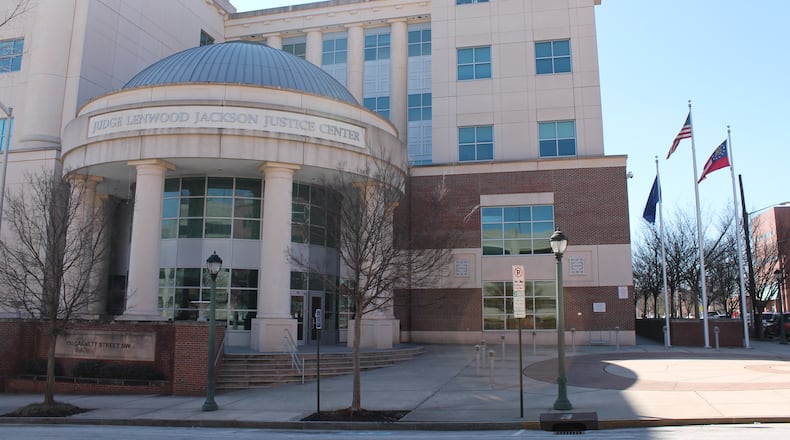Judges in Atlanta's Municipal Court are imposing illegal sentences on indigent offenders, telling them they'll have to spend time in jail if they can't pay their fines, a civil rights group said.
The Southern Center for Human Rights outlined its concerns in a letter sent Monday to Mayor Keisha Lance Bottoms and Chief Judge Christopher Portis. Southern Center lawyer Sarah Geraghty also told the city if it doesn't change its practice by March 20, it will get hit with a lawsuit.
In a statement, a court spokeswoman defended the sentences and contended that offenders are not given ultimatums to decide between serving time or paying a fine.
In her letter, Geraghty cited seven cases where she said the practice occurred. In December, for example, Judge Herman Sloan accepted a plea from a man charged with being a pedestrian in a roadway.
Sloan imposed a $150 fine and a sentence of five days in jail. Sloan then told the defendant he didn't have to spend the five days in jail if he paid the fine. The judge also said the fine would be suspended if the man served the time, the Southern Center said.
In recent months, judges imposed similar sentences on a man charged with drinking beer on a city sidewalk, a man who was disruptive at Grady Memorial Hospital, a man who urinated on a city sidewalk, a man who shoplifted two packs of meat and a woman who was disorderly while under the influence. All of them served jail time instead of paying a fine.
“The court violates the bedrock principle of equal protection under law when it jails people only because they don’t have money to buy their release,” Geraghty said. “Pay-or-jail sentences imposed on homeless people who clearly cannot pay are not only unconstitutional, they undermine the integrity of Atlanta’s criminal legal system.”
Municipal Court spokeswoman Tialer Maxwell said the sentences imposed in her court were the result of negotiated pleas between the defense and the prosecution. “If the terms are fair and appropriate under the circumstances, the judge may accept the deal as presented, as he did in all of the cases.”
JAILING THE POOR: Cash bond under fire in Atlanta
MORE: In a nod to the needy, Atlanta changes cash bond system
She added: “In no instance was a defendant required to choose between paying a fine or having to serve time in jail. … On its face, the information reported by (the Southern Center) can be misinterpreted.”
Defendants were not told they had to choose between a fine or jail time by the judge, Maxwell added. “All the cases referenced by (the Southern Center) were sentenced to fine and time, not ‘or.’”
That did not appear to be what happened on Nov. 7 in another case in which Tyvaugh Jinks entered a guilty plea for traffic offenses.
For one offense, Sloan imposed a $500 fine or a jail sentence of three days. For the other offense, Sloan imposed a $200 fine or three days in jail. The jail sentences would be suspended upon payment of the fines, the judge said.
“So I have to pay before I get out?” Jinks asked.
“No,” Sloan answered, “you either pay the fine or you do the jail time.”
Sloan is not the only Municipal Court judge who imposes such sentences, Geraghty said.
In her letter to the city, Geraghty said the federal appeals court found unconstitutional a similar practice used by Municipal Court almost 50 years ago. In that case, defendants charged with violating the city’s noise and fire ordinances were told they could pay a $17 fine or spend 13 days in jail.
“The alternative fine before us creates two disparately treated classes: those who can satisfy a fine immediately upon its levy, and those who can pay only over a period of time, if then,” the 1972 court ruling said. “Those with means avoid imprisonment; the indigent cannot escape imprisonment.”
Atlanta’s Municipal Court was under fire recently for another issue involving the jailing of poor defendants. Early last year, Bottoms signed an ordinance eliminating the court’s cash bond requirement for some low-level offenders who otherwise would sit in jail because they can’t afford bail.
About the Author
Keep Reading
The Latest
Featured





